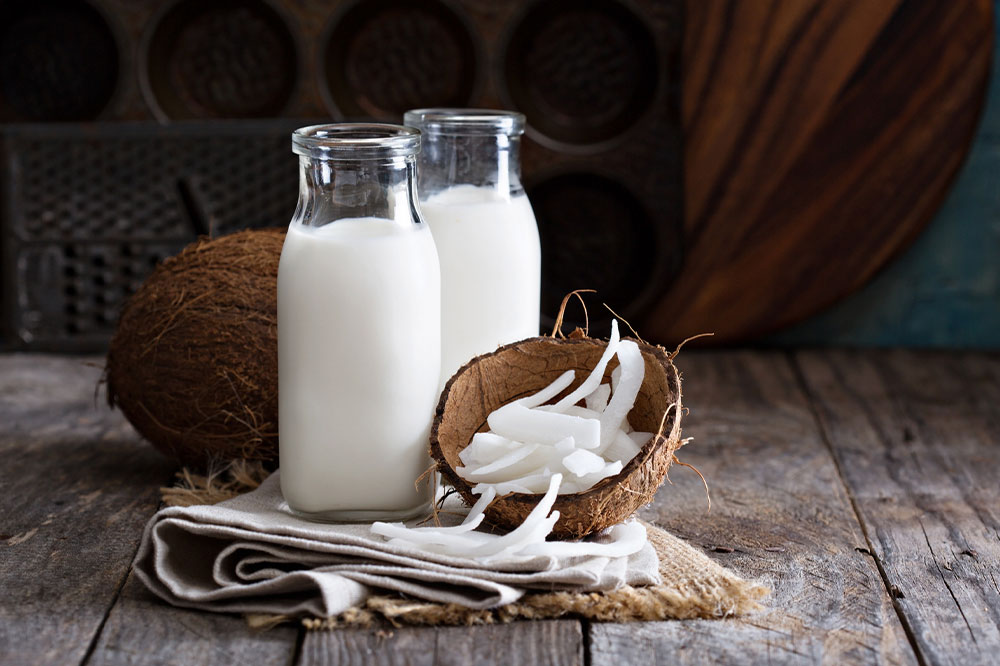Top 6 foods to combat symptoms of GERD and EoE

Gastroesophageal reflux disease (GERD) is a condition wherein the digestive acids from the stomach flow back into the esophagus. People with this condition experience frequent throat aches, ingestion difficulties, and heartburn. Eosinophilic esophagitis (EoE) is a condition characterized by the aggressive inflammation of one’s food pipe lining. Although both these conditions are fundamentally different, they share some common symptoms. Additionally, these symptoms can be alleviated by eating healthy foods, some of which are mentioned below.
Coconut milk
Coconut milk is an excellent, delicious, and creamy alternative to conventional cow’s milk. Cow’s milk contains specific proteins, such as casein, that trigger an immune response and cause esophageal inflammation. On the other hand, coconut milk can address two problems with one solution. Firstly, it does not cause an EoE flare-up. Additionally, coconut milk is highly nutritious in its own right. It is loaded with nutrients and minerals, many of which safeguard the esophagus and stomach lining from rampant inflammation. As a result, it is one of the best foods to eat to counter GERD.
Oatmeal (gluten-free and without milk)
Oatmeal that is used to reduce the severity of GERD symptoms must be gluten-free and milk-free. One can eat gluten-free oatmeal made using coconut milk for the purpose. Also, oatmeal’s high-fiber composition makes one full for longer periods and prevents people from overeating. It, in turn, reduces the possibility of developing GERD or worsening its symptoms. Oatmeal smoothies can drastically reduce the acidic onslaught from the stomach to one’s esophageal lining. Healthcare experts generally recommend people with GERD eat such anti-inflammatory foods.
Avocado
Avocados are loaded with healthy fats. These fats help settle one’s stomach after meals and prevent acid reflux. Avocados are also healthy nutritional alternatives to some gluten-loaded foods that worsen EoE symptoms. Add avocados to one’s daily nutritional regime for a filling and highly nourishing meal.
Lean poultry
Certain types of meat, such as beef, chicken, and pork, can dial up the acidity levels in people’s bodies and cause problems such as heartburn, difficulty swallowing food and even vomiting. Since such meats are rich in protein and other nutrients and are generally hard to replace in daily meals, lean poultry is the best substitute. Poultry contains no inflammatory elements that trigger adverse immune reactions, flare-ups, or general indigestion. Additionally, they do not affect the acidic balance in a person’s body.
Due to these reasons, lean poultry meat, such as the white meat of chicken, Cornish hens, and turkey, that contains less than 10 grams of fat in every 3-ounce serving, is the best protein option.
Broccoli
Green vegetables are generally good for fighting GERD. The best among the lot is, unsurprisingly, broccoli. It is high in vitamin C, which actively fights inflammation within the esophagus.
Ginger
Ginger contains many healthy elements that help people recover from a cough, common cold, and other throat-related issues. These elements also shine through when managing conditions like GERD and EoE. Ginger lowers inflammation in the body. One can eat ginger pieces or mix it in vegetables, tea, or soups to savor its goodness.


